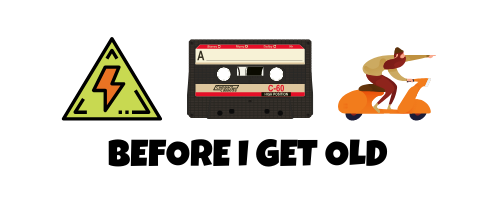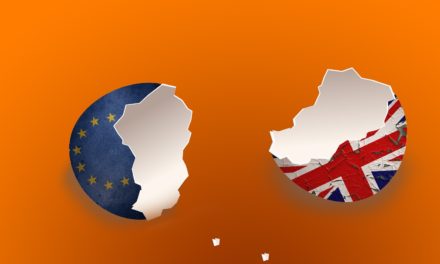It was a throwaway comment in a trivial conversation, but when a mate of mine said ‘Life’s too short to waste it doing things you don’t like,’ it flicked a switch. What it made me realise was that life, for most of us lucky people is the opposite and that’s the problem. Life is actually too long and that’s why we procrastinate and fail to get half the stuff done that we should do, want to and really, really ought to.
I want to be a better husband/lover/drummer/writer/motorcyclist, I’d like to be thinner and fitter too. Mostly, by my age I know exactly what I need to do to make all the above happen and I have more than enough time in the next two years to achieve all of them. But, instead, I get distracted by hundreds of mindless, meaningless trivial events that suck up the time I ought be using to make the lives of both me and the people around me much more enjoyable and productive.
So instead of ‘The diet starts tomorrow’…again, I’m going to try ‘Life’s too long to not be able to do all this stuff and more by the time I die of cancer/dementia/insert irrational illness here.’ I am going to going to do this and, this time I am going to make it happen.
I think part of the point here is also about how we, as 21st century humans have come to view optimism, pessimism and more than that, our relationships with others and the world around us.
If that sounds deep for a blog with a cutsie dawgie as its Facebook image then I apologise, but I’ve been thinking about this a lot.
All my life I’ve been an optimist. Seriously, I take great pleasure from the simplest of things, always believe that people are fundamentally good, absolutely understand that no matter how badly I ride my motorbike that I am going to survive and that, despite being told how annoying I am on a regular basis by my lovely wife, I still somehow believe that she’s only kidding.
Recently, I read a book called ‘The Infinite Game’ by Simon Sinek. It’s a fascinating read – both thought provoking and affirmative for someone like me that much of the way I think about life is shared by at least one other person. Of course, it’s always easier to be inspired by people who mostly agree with you, but one of the most interesting chapters in the book is about the difference between seeing others as competitors and rivals.
I’d never thought about it in these terms before, but now I see that when many of my employers, colleagues and managers have described me as lacking a competitive mindset, that it might not have been half as much of a problem as they were suggesting.
The simple premise of the book is that you can either play a ‘Finite game’ like football which has clear rules, a fixed time frame and simple definition of what needs to happen to win, or an ‘Infinite game’ which has none of the above but is based around a stated ‘Just Cause’ that you follow because you believe in it and, along the way because it’s a Just Cause and because you believe in it you will do good things and be successful right up to the point where you are not (or you die).
Life may be finite but living is an infinite game. You can’t ‘win’ at life. No one retires at 65 and gets a trophy for ‘winning’ their career. No one would choose to have their final closing bank balance engraved on their tombstone as the epitaph that sums them up best.
And one of the most interesting chapters in the book is understanding the difference between your competitors in a finite game and your rivals in an infinite one. Competitors are there to be beaten, where rivals can co-exist and learn from one another to become individually (and sometimes mutually) stronger. An optimist will look at a rival as someone else playing an infinite game that can be learned from and admired, where a pessimist will see a competitor as the finite enemy who are standing in the way of their greatness.
Politics has become a really interesting example of this. How we run our societies should be the archetypal definition of ‘infinite’. Applying and evolving our ideologies of how to leverage living standards, education, healthcare, wealth and ambition for all our citizens is exactly what politics and democratic living should be about. The parties not in power should be aiming to be worthy rivals, able to influence both the government to either give them confidence or the electorate that their opposing outlooks and policies are more relevant.
Instead, in recent years politics has become finite; all about winning and retaining power at all costs, failing to engage or listen to either the public or other politicians and, instead to create policy ideas from the work of unelected think-tanks, usually funded by big businesses who have worked out that this is the way to protect their agendas.
As this mindset comes to dominate, politics and election campaigns in particular become less and less about the issues, the policies and the strategies to lead our societies (and let’s not forget, that above all, our politicians are our elected leaders, who we should look to as examples of trust and integrity, that we should be inspired to follow) and more about destroying and disparaging the opposition at any cost, even the most obvious of truths.
Social media makes this all-too easy. Emotional messages that neither require or expect any detailed analysis, but simply to generate an angry response flood our feeds daily. Because they are usually shared by someone else in our network, we are already a little more open to the message.
It’s fascinating to see how those on the right of politics have adopted this position much more than the left who still, cling in vain to the idea that politics is some kind of noble debate about the philosophy or running democracy while the right just humiliates, bullies and belittles them every few years.
You see it strongest in the way that the right-wing groups – both large and small attack the BBC for being too left-wing at every opportunity. Now, don’t get me wrong, there are plenty of problems with the BBC’s news coverage; being too obsessed with generating a soundbite, not following up one question with the obvious killer punch and mostly failing to add anything constructive to the debate or allow a discussion. But the only reason that the BBC might appear to be a little to the left is that the vast majority of print, digital and other broadcast media in the UK is so far to the right.
One recent example was the ‘story’ last summer about the BBC supposedly banning Land of Hope and Glory and Rule Britannia from the 2020 Proms concerts. Apart from the fact that 99.9% of the UK population doesn’t know any of the words to either song beyond the third line of the first verse, the actual story was all about the BBC trying to manage the safety of the performers in a pandemic.
The paper that turned an innocuous allegedly off-the-cuff comment into an opportunity for the Crunchy-Nut-loops of social media to jump on the BBC was the very-definitely-leaning-to-the-right Sunday Times – owned by a certain Mr R Murdoch who also owns a whole bunch of TV and radio stations with quite a lot to gain from a wounded BBC. Oh, and of course it acted as a massive distraction and smokescreen from the actual news about government failing to manage the schools and examination issues while abolishing Public Health England and sacking civil servants.
Which might all sound like the biased rantings of a loony-left bloggiest and that might be true. But in this world it’s my view = my truth = the truth.
And that, of course is the most scary part about the whole flipping thing.










